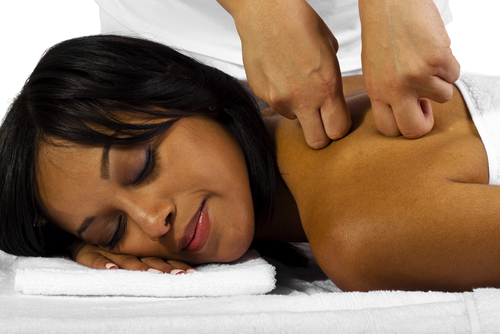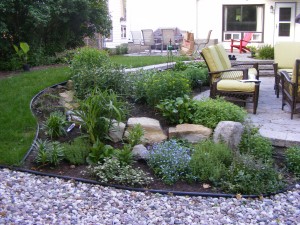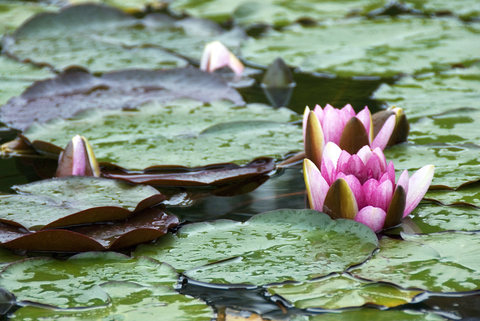Ain’t no “woo woo” going on. Mind, body, relaxation and health
Relaxation.
It’s so elusive for many of us. And yet, so important to our overall health and wellbeing. In fact, researchers are finally discovering how relaxation actually counters changes that occur in our bodies that result from exposure to constant stressors.
For decades, Dr. Herbert Benson, founder of the Mind-Body Institute in Cambridge, MA and an associate professor at Harvard University, has been writing about the relaxation response, a “mind-body intervention that elicits deep changes in the physical and emotional response to stress.” Strategies that elicit the relaxation response include meditation, yoga, tai chi, Qi gong, deep breathing, controlled muscle relaxation and guided imagery. And although many would like to point to the “woo woo” factor at-play, an evolving and wide body of published literature is indicative of how interested the medical community is in the mid-body connection and the positive changes that these practices promote, including a slowing or heart rate, a reduction in blood pressure, improvements in blood sugar and fats, and even boosts in our immune system. However, what has long eluded researchers is what actually happens in the body to achieve these improvements.
In a novel study published in 2008 in PLoS ONE, Dr. Benson and his colleagues looked closely at 19 volunteers who had practiced relaxation response strategies (e.g. meditation, yoga, repetitive prayers) for as long as 20 years and compared them to 20 novices, individuals with no relaxation practice experience. These novices were provided with training sessions for 8 weeks that included information about how to reduce daily stress and the relaxation response and a 20 minute, individually-guided session comprising diaphragmatic breathing, a body scan and meditation.For 8 weeks thereafter, the novices then used a 20-minute relaxation CD at home and were asked to review the informational brochures. Blood samples and analysis of gene expression between experienced and novel relaxation practices, and pre- and post-training were then compared.
Importantly, while the researchers observed distinct changes in the genes in experienced relaxation practitioners compared to novices, when the novices started to incorporate relaxation practice into their lives, they also started to express similar positive alterations in their genes. Moreover, these changes are directly related to how cells respond to stress and create free radicals and inflammation that can lead to long-term damage. Additionally, type of relaxation strategy that was practiced was of no important; by achieving a relaxation state, individuals could make positive changes in their cellular structures thought to promote health.
Both inner and outer psychological states and environmental factors play a role in how women experience peri and post-menopause, their self-esteem, attitudes and severity of symptoms. If a daily practice of some sort of relaxation strategy can actually alter genes in a way that improves health and well-being, why can’t that daily practice also improve the menopausal/midlife experience?
While I’ve long embraced the idea, I’ve never actually made a concerted effort to incorporate some sort of relaxation strategy into my daily activities. I’m going to change that. Ain’t no woo woo but a woot woot so far as I can tell.
Read MoreCan you massage your way to sleep?
 Insomnia! Yes, folks, it’s that time of the year when I raise the sleep issue. In fact, if I could, I would see your zzz’s and raise you a few. You see, I’ve not been sleeping much as of late and I’m desperately seeking a sheep or two to carry me deeply through the night.
Insomnia! Yes, folks, it’s that time of the year when I raise the sleep issue. In fact, if I could, I would see your zzz’s and raise you a few. You see, I’ve not been sleeping much as of late and I’m desperately seeking a sheep or two to carry me deeply through the night.
What happens to us as we age that interrupts the sleep cycle? In addition to stress and other environmental factors (which I’ve covered quite frequently on Flashfree), a progressive decline in estrogen and loss of ovarian function can strongly affect sleep. However, experts say that despite the pervasiveness of sleep issues among peri- and post-menopausal women, insomnia is not always adequately discussed or diagnosed by health practitioners. Hence, it behooves women to lead the communication charge when sleep disorders arise or start to affect daily life.
If you would prefer to avoid the hormone route (which, at the very least, may address the issue of menopausal symptoms and sleep disruption), massage might be a good starting point. While some practitioners questions its therapeutic value from a scientific standpoint, massage is known to positively activate blood flow in the lymphatic system (whose primary role is to rid the body of toxins, waste and other unwanted materials), as well as in the connective tissue and muscles. Studies have also shown that massage helps trigger neurochemical reactions in the body, including relaxation, decreased heart rate and breathing and restoration of balance. With regard to menopause specifically, there are some data that suggest that therapeutic massage decreases self-reported insomnia and improve deep sleep cycles. In a similar study, this time with a comparison group, researchers likewise found declines in insomnia and related improvement in life quality. Not surprisingly, in both of these studies, women also reported experiencing improvements in mood.
So, can you massage your way to sleep? While cause and effect remain unproven, the benefits of massage well outweigh the lack of benefits. I don’t know a single person who have not felt better after a massage. Me? I may need to book some me time for a deep rub.
Read More
Guyside: In the Garden
In my part of the world, spring has finally given us some warm sunny days. It seems as if the plants in my back yard were impatiently waiting to get on with the business of blooming.
And that meant that my partner and I spent some hours over Canada’s Victoria Day weekend tending our little piece of the planet.
When it comes to gardens, I am more inclined to be a passive appreciator. I don’t know much about flowers, but I do like to look at them and smell them. And for the next six months or so, I am lucky enough to be able to take my notebook out to the garden and work in the middle of what we jokingly call “the cottage.”
But I lack the strategic sense when it comes to our garden. Cathy sees what could be, what needs to move, what needs to split. I don’t. And to be honest, digging and weeding and hoisting stuff isn’t of less interest to me. So when it comes to gardening, I’m the brute force and the cheap labour, doing what I’m told by the person with brains.
But even if you’re like me, there are a lot of benefits to be derived by working in the garden. Even some moderate gardening can have similar effects to other forms of exercise, according to Weight Watchers. One implication of that: prepare for gardening the same way as you would for other forms of exercise. Do a little warmup, stretch, and the like. Most important for me is to vary my tasks. Don’t rake for three hour stretches (not that I could rake for that long in my plot anyway); don’t be bent over weeding for hours. Take breaks and change up the task to keep your muscles limber.
There are also psychological and spiritual benefits of working in the garden. The University of Nebraska College of Public Health published a great two-part article outlining the benefits of gardening. Their focus was not only on your own garden space, but on community gardening. If you live near a community garden, you may not only be able to put food on your own table, but to help others who need it to have the freshest, healthiest food that can be imagined. We grow tomatoes every year, and there’s nothing like a fresh tomato plucked right off the vine, or a pasta sauce made with tomatoes and herbs you grew yourself and harvested that very day.
Maybe it just comes down to some very simple truths: it feels good to take responsibility for even a little part of what we eat. It feels good to be in the sun, to watch the rain come down and help your plants grow, to enjoy the harvest. For a white-collar dude like me, it feels good to get your hands dirty from time to time. It’s nice to be the cheap labour and not have to make decisions once in a while!
Spending time in the garden — whether working or enjoying — gives us windows of time when we can simply let go of the other stuff in our lives and just be in the moment. And damn, it’s nice to be lying in the hammock with a beer in reach, and a book open on your chest, idly looking around at your own patch of green.
Read More
The present of being present: cortisol and mindfulness meditation
Sometimes things are just timely. Like this post, which I am bringing back today for your consideration.
Happy Friday, folks! Wishing you a stress free weekend!
It seems that I write about stress a lot on FlashFree. Perhaps that is because like many, my life — namely my work — can be very stressful from time to time. However, according to the American Psychological Association, I’m not alone; most Americans suffer from moderate to high stress and the problem does not appear to be going away. Moreover? Work issues are the primary stressors in 77% of people.
From a midlife perspective, stress and its related hormone, cortisol, can cause a lot of health-related problems. In fact, not only does cortisol promote a fat dump in the midsection, but experts say that overexposure to cortisol and other stress hormones has a cumulative affect, leading to heart disease, sleep issues, digestive issues, obesity, depression and worsening of skin conditions. It’s critical to counter stress’ negative effects before they take their toll and start to do permanent damage. One important strategy to achieve a better balance is meditation.
Fortunately, a team of researchers at UC Davis’ Center for Mind and Brain are devoting time to studying psychological and physiological processes in order to explain the benefits of meditation. The framework for this effort is the Shamatha Project, which is apparently the most comprehensive meditation study ever undertaken. Most importantly, this scientific twist on a centuries old practice may ultimately elevate meditation’s place in Western medicine.
To better understand the effects of meditation on stress, the research team recently took 60 people (between the ages of 22 and 69) who had some prior experience with meditation, measured cortisol and body mass index and their current degree of ‘mindfulness,*’ and then randomly assigned them to a three month meditation retreat or a waiting list. Those on the waiting list participated in the same, three-month retreat at a later date. (*Participants completed a mindfulness questionnaire that measured the degree that these people directed their cognitive resources to sensory experiences and how often they drifted, as well as their ability to let go of distressing thoughts.)
At the retreat, the group met two times a day for one hour, guided sessions and the rest of the time (around 6 hours) practiced solo meditation in 20 to 30 minute increments. Meditation practices were focused on mindful breathing and relaxation and promoted compassion and kindness toward others. Overall, the emphasis was on present awareness rather than meandering into the future of ‘what if’s.’ During the middle of the retreat, all were encouraged to enter into silence for a period of about four weeks. Aside from scheduled meals and group meditations, everyone was on their own to decide sole meditation, exercise and free time.
Did learning how to direct and focus attention away from uncontrolled, ruminating thoughts and worry and toward a chosen target reduce cortisol levels? The researchers say that they found a correlation between a high score for mindfulness and a low score in cortisol, both before and after the retreat. The results were greatest for participants who were able to achieve the greatest increases in mindfulness, that is, the more that they reported directing their thoughts to the present/immediate experience, the lower their resting cortisol levels were. Participants also experienced large improvements in overall wellbeing, daily mood and emotional functioning.
While the findings do not prove cause and effect, they do suggest that changing the mind paradigm to focus on the now rather than the future may ultimately help to reduce our tendency to think about the past or worry about the future and in turn, counter excessive cortisol release.
Tonya Jacobs, a postdoctoral researcher and the study’s lead author, explains that “the idea that we can train our minds in a way that fosters healthy mental habits and that these habits may be reflected in mind-body relations is not news; it’s been around for centuries. But, accumulating evidence might help the idea — that the present is the best present we can give ourselves — be better integrated into Western mentalities and health practices.
Mindful meditation may ultimately prove to be one of our strongest defenses against stress and its companion, cortisol!
Read MoreNewsflash: Yoga and hot flashes
When it comes to alternative strategies for managing hot flashes, where do you turn? I’ve been writing about alternatives for five years now and the only thing I am fairly certain of is that what works for one woman doesn’t necessarily work for the next. Consider the management of menopausal symptoms similar to the management of any condition: the best treatment is always individualized.
Still, mind-body practices tend to rise to fore and evidence continues to accumulate supporting their value and usefulness. This is especially true of meditation, and of yoga.
The latest news on yoga comes from the online edition of Menopause journal and researchers are saying that integral yoga practice may help to reduce hot flash frequency among some women.
Integral yoga integrates the various branches of yoga and focuses on a whole body approach with the goal of transforming the entire being. Experts say that it is especially well suited to hot flashes because it emphasizes stress reduction and decreasing the likelihood of becoming overheated.
To evaluate its usefulness in a more scientific setting, researchers asked a small group of women in perimenopause who reported at least four hot flashes a day to participate in 10 weekly, 90-minutes integral yoga classes comprising breathing, centering medication, physical postures and deep relaxation, or health and wellness classes on different topics relevant to menopause and midlife women’s health or no interventions at all. All had the option to join classes at any time, and were required to fill out diaries about their flashes.
The findings? The researchers say that even after controlling for a potential placebo effect, both the yoga and health and wellness groups tended to follow a similar pattern and a similar significant decline in hot flash frequency. Women in these groups reported an estimated 66% (yoga) and 63% (health/wellness) decrease in the frequency of their hot flashes. And, while the effectiveness of yoga to lower hot flash frequency was not considerably different than that of the health/wellness education classes, the inclusion of the two behavioral interventions may perhaps capture naysayers’ attention; most studies only include on behavioral intervention and having two helps to temper bias.
We need more studies like this one to tease out the benefits of behavioral interventions. The good news is that the information is there for those who look deeply enough.
Read More









